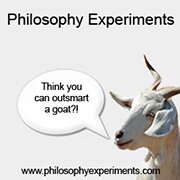Our special series is continued by Ingrid Robeyns

Amartya Sen
Within moral and political philosophy, the capability approach has in recent decades emerged as an important view about well-being, development and justice. The capability view advocates that well-being is a matter of what people are able to do and to be, and thus the kind of life they are effectively able to lead. The capability approach is generally conceived as a flexible and multi-purpose view, rather than a precise theory of well-being. That is why most philosophers speak of an “approach”, rather than a theory.
Despite philosophical disagreements about the best description of the capability approach, it is generally understood as a conceptual framework for the evaluation and assessment of individual well-being and social arrangements, and for the design of policies and proposals about social change in society, which prioritises what people can do and who they can be. This stands in contrast to other theories of well-being, which focus rather on subjective categories (such as happiness) or on the material means to well-being (such as income or wealth).
Historically, its roots can be traced back to Aristotle, Adam Smith and Karl Marx, among others. Nonetheless, it has become especially well-known recently through the work of Amartya Sen and Martha Nussbaum. Sen is an Indian-born economist and philosopher. He first proposed the ideas of the capability approach by criticising two alternative philosophical positions. Firstly, he criticised John Rawls’s argument that social justice should be concerned with material resources, liberties and socio-economic opportunities, since Rawls’s approach would not properly account for individual diversity between people. For example, a disabled person needs more and different kinds of resources than an able-bodied person. Secondly, Sen also offered the capability view as an alternative to utilitarianism – either the version that focuses on happiness or satisfaction, or the version that focuses on the fulfilment of preferences. Sen argued that we should not accept a view of well-being which holds that the contented slave or the oppressed housewife is leading a good life.
Sen argues that theories in moral and political philosophy that draw on ideas of well-being or the quality of life should focus on what he called people’s “functionings” and “capabilities”. Examples of functionings are being mobile, being literate, being healthy, being part of a supportive community, being respected, practising a religion, and living without excessive mental stress. Capabilities are the freedoms to those functionings. Hence, the distinction between functionings and capabilities is between the realised and the effectively possible, in other words, between achievements and valuable options. What is ultimately important is that adults have the freedoms to lead the kind of lives they want to lead, to do what they want to do and be the person they want to be. Once they effectively have these substantive opportunities, they can choose those options which they value most. For example, every person should have the opportunity to be part of a community and to practice a religion, but if someone prefers to be a hermit or an atheist, they should also have this option.
In the end, Sen argues, a just society should focus on the capabilities which that society makes available to people. (In the case of small children and other human beings who are not able to make well-reflected and responsible choices, we will often need to focus on functionings directly). Compared to other theories, the capability approach pays much more attention to the social and non-material aspects of the quality of life, including care, social relations, and psychological well-being.
Martha Nussbaum, the American-born classicist and philosopher, found inspiration in Aristotle, and later in Marx and John Rawls, to develop the capability approach into a theory of justice and constitutional principles. She argued that all governments should guarantee their citizens minimum levels of a list of ten central human capabilities. In her earlier work she argued that these are essential to leading a human life, yet in later work she has shifted her focus more to a liberal justification for those capabilities. She is especially well-known for having defended a general yet rather detailed list of capabilities, which is something Sen believes is not the task of philosophers but should emerge from public debate.
The impact of the capability approach has been quite significant. Within academia, the capability approach is used in a wide range of fields and disciplines to evaluate people’s well-being, inequality, poverty, development and social justice. The capability approach provided part of the foundations of the Human Development Paradigm, a people-centred view on development which has been proposed as an alternative for the neo-liberal view on economic development. The United Nations, especially its Human Development Report Office, has played a crucial role in this work. In the UK, the Equality and Human Rights Commission also used the capability approach when developing its philosophical foundations.
Further reading
An Introduction to the Human Development and Capability Approach, ed. Severine Deneulin (Earthscan, 2009)
Ingrid Robeyns is professor of practical philosophy at the Erasmus University in Rotterdam and a blogger at Crooked Timber
Read articles like these as they are published, and much more, by subscribing to the magazine
 Email This Post
Email This Post 



Indeed nice introductory article.
Wouldn’t “oppressed slave and contented housewife” read better?
The concept of the capabilities approach as presented here, is contradictory. You cannot separate what people are able to do and be and the life they are able to lead, without considering the material aspects and their happiness. The dichotomy is false. People’s capability to become is based on the material factors that enable this to happen. To be and to have happiness are interconnected with the kind of person that will emerge. Social relations, care, and psychological well well being, can only bear fruit, if the material aspects of things, which supply the framework and base for these to be realised are present. Both the material and non-material considerations are important.
Oliver Mills